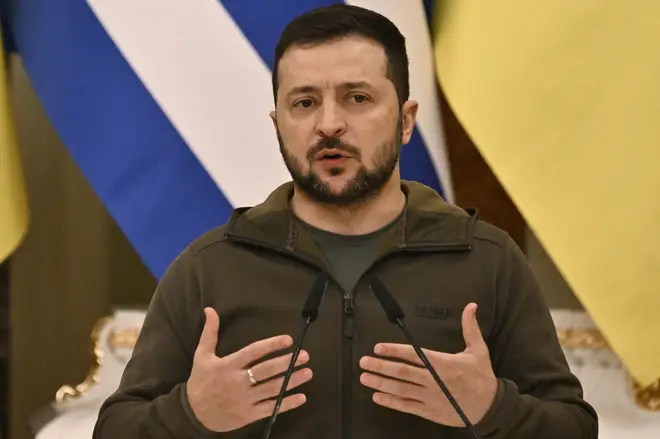
Iain Dale 7pm - 10pm
20 November 2024, 19:49

Britain must learn from Nordic nations to boost its defence as tensions rise across Europe, the UK’s military chief has said.
Admiral Sir Tony Radakin, the chief of the defence staff, warned that Britain has a “weaker culture” of national resilience when compared to its Nordic allies and should learn from them as tensions rise across Europe.
It comes as Russia’s war on Ukraine threatens to spill into Britain’s Nato allies, with Vladimir Putin warning there could be nuclear consequences if long-range US missiles hit Russia.
Admiral Radakin warned Britain is falling behind in what is known as “whole-of-society defence” - where business owners and individuals play a role in making a nation more resilient to rising tensions.
Read more: Sweden issues pamphlet telling citizens how to prepare for potential war as WWIII fears grow
“I think we have to acknowledge that we are in a different position … a slightly weaker one than my [Nordic and Baltic] colleagues on the panel,” Admiral Radakin told the Berlin security conference, alongside officials from Sweden, Norway, Finland, Estonia and Lithuania.

“It’s an area where we don’t have the culture of total defence. We don’t have some of the civil aspects or planning aspects that other countries within Nato have as part of their traditions.
“We are having those conversations to learn from our colleagues and see what might be appropriate for ourselves.”
Sweden’s civil defence minister Carl-Oskar Bohlin, the nation’s first since World War Two, said the country plans to introduce civilian conscription for young men in the wake of Russia’s invasion of Ukraine.
“The conclusions from Ukraine speak for themselves,” he said.

“Deterrence doesn’t start at the barrel of a gun. It starts with a society that can muster a credible answer to the threat of an armed attack. This starts with each and every individual in Swedish society … You cannot just outsource security to the military.”
It comes after Sweden issued a pamphlet telling citizens to stockpile food and water during a nuclear attack as World War Three fears grow.
The booklet - titled 'If Crisis or War Comes' - is being sent out by the Swedish Civil Contingencies Agency (MSB).
It also has information on how to prepare for other emergencies such as natural disasters, cyber attacks and terrorism.
The introduction reads: "An insecure world requires preparedness. The military threat to Sweden has increased and we must prepare for the worst - an armed attack."

Tensions continue to rise in Europe following President Joe Biden’s decision to allow Ukraine the use of long-range US missiles in Russia.
Following the decision, Vladimir Putin signed a new doctrine lowering the threshold for the use of nuclear weapons.
The doctrine said any aggression against Russia by a state which was a member of a coalition would be considered by Moscow to be aggression against it by the whole coalition.
The move followed the decision from US President Joe Biden to allow Ukraine to use long-range missiles in Russia.
A spokesperson for the Russian government said: "Kyiv's use of long-range missiles to attack our territory would represent the direct involvement of the United States and its satellites in hostilities against Russia, as well as a radical change in the essence and nature of the conflict.
"Russia's response in such a case will be appropriate and tangible."